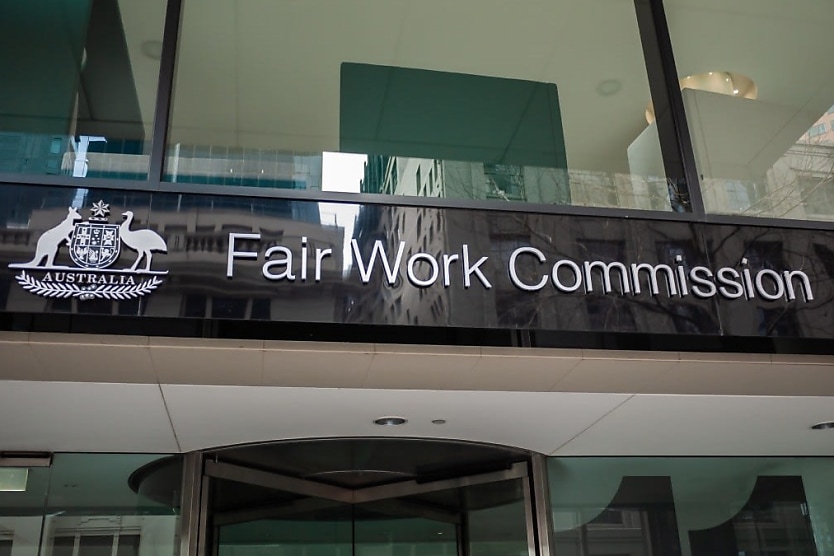
The Northern Territory Stolen Generations Aboriginal Corporation has been ordered to pay compensation towards a former employee it dismissed.
An unfair dismissal case was brought before the Fair Work Commission (FWC) by a former employee of the not-for-profit organisation, which is dedicated to advocating for the rights and wellbeing of all stolen generations persons residing in the Northern Territory.
As a part of its operations, since 2021, the organisation has facilitated a “redress scheme” with the purpose being to compensate the individuals of the stolen generations.
The case centred on the alleged culturally inappropriate actions of a former employee who directly worked with Indigenous Australians.
The former employee was hired as a “territories stolen generations scheme redress officer”, with a job task of facilitating assistance to individuals who are eligible for the compensation, meaning that extensive community engagement was a major component of her role.
Upon her arrival to the organisation, the former employee was told by the organisation’s representatives that the job requires that they work in a “culturally appropriate manner at all times”.
“We work with vulnerable people, and we must make sure we work in a culturally appropriate manner at all times,” they said.
Various complaints
On 1 September 2022, the former employee officially commenced in the role of redress officer. Around eight months into her tenure, the former employee attended Marumali training (cultural training), conducted by an Indigenous leader and her daughter.
Following this training, the former employee received a complaint, based on her decorum, stating that she had spoken over the pair.
Then, in June 2023, she received a similar complaint, claiming that she asked questions to Indigenous elders that were abrupt in nature and that, due to her actions, the elders did not wish to interact with her again.
Later in the same month, Indigenous elders complained that the former employee lacked sensitivity when listening and responding to their experiences. They further stated that she was asking “too many questions”, somewhat cross-examining the legitimacy of their experiences.
Due to the various complaints raised, that were all in a similar nature relating to the lack of cultural sensitivity, on 8 November 2023, the organisation decided to stand down the former employee with full pay.
Back-and-forth emails
The initial stand-down notice was relayed to the former employee in a manner that created confusion, as it didn’t specify the reasoning or the nature of the stand-down. The former employee sent an email to her employer asking for clarity:
“Hi [manager], As I haven’t heard from you since Friday could you please instruct me further. I remain ready, willing, and able to work and you still have not informed me as to why you told me not to present to the office this past Monday, Tuesday and Wednesday. I intend to present to work in the morning unless you instruct me otherwise.”
Her employer replied:
“The Board is meeting on Friday afternoon and I will be able to let you know more then. I am working with HR at the moment and we will send you a letter tomorrow. Please do not come to work until I have let you know as this is a process that I have to do and go through to protect the organisation.”
A formal stand-down letter was then issued to the former employee on 10 November 2023. The employee then asked for the reasoning behind her being stood down, citing that she had still not been informed as to why this was occurring.
To which her employer replied in an email:
“Sorry for not responding earlier. The allegations for you being stood down are that your behaviour towards staff and clients are culturally inappropriate. I have been dealing with our HR and have been advised to stand you down on full pay.”
A final email was sent from the former employee to the organisation’s interim chief executive on 21 November, stating:
“Dear Raelene who is ‘our HR’? Please provide copies of any complaints made against me (including outdated) and all staff grievance reports to which you refer in your email below this morning. You have not raised any of this with me before and I wish to know the case against me and have a reasonable opportunity to respond.”
On 17 January 2024, the former employee was notified by the organisation’s interim chief executive that her employment had been terminated, stating that the pay she was still owed would be sorted the following day.
Fair Work Commission’s decision
The organisation explained that the reasoning behind her termination was that “[our] staff will not work with [her] and we have received complaints from clients”. It added: “We have to work with clients that have already been traumatised and must ensure that delivery of our service is in a culturally appropriate manner.”
The organisation submitted in its statement to the FWC that the “enterprise is wholly dependent on maintaining strong and effective relationships with the Indigenous community”. Due to the actions of the former employee, this cohesion and relationship was jeopardised, according to the organisation.
In terms of the unfair dismissal case, the organisation raised a jurisdictional objection on the basis that it is a small business and, therefore, falls under the Small Business Fair Dismissal Code.
This code states: “It is fair for an employer to dismiss an employee without notice or warning when the employer believes on reasonable grounds that the employee’s conduct is sufficiently serious to justify immediate dismissal.”
The organisation believed that because the former employee jeopardised its relationship with the Indigenous community and the candidates for the redress scheme, it effectively constitutes sufficiently serious conduct, thus resulting in the dismissal without notice.
It was also claimed that verbal feedback was given to the former employee on numerous occasions, warning her that certain actions would not suffice in that environment.
However, the FWC denied the legitimacy of this notion, stating that verbal feedback is not a warning and that “the code is quite specific”.
The FWC claimed that the organisation had a statutory obligation to warn the former employee that she was at risk of being terminated if her performance did not improve. If the former employee’s actions towards clients were disrespectful or insensitive, then a dismissal would be in order, but only after a concise warning, said the FWC.
Since the warning was not issued, the former employee was not given room to improve, nor was she afforded the appropriate training or education to “redeem” herself.
The FWC concluded that the organisation did not have a valid reason to terminate the former employee, as she did not receive a “fair go” throughout the process. The organisation was ordered to pay the former employee seven weeks pay, plus superannuation.
Kace O'Neill
Kace O'Neill is a Graduate Journalist for HR Leader. Kace studied Media Communications and Maori studies at the University of Otago, he has a passion for sports and storytelling.










